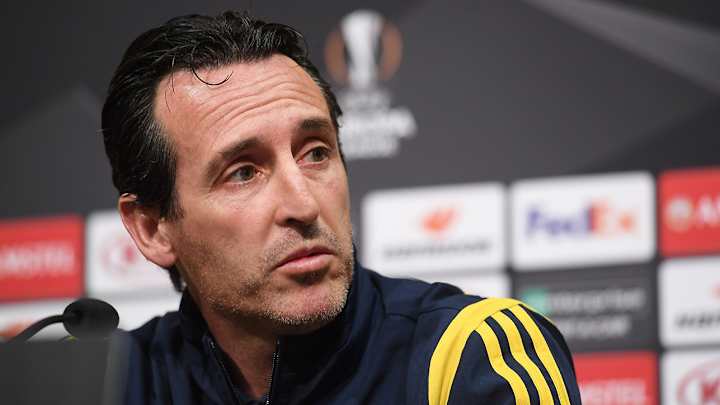Arsenal Parts Ways With Unai Emery, but a Plan to Success Remains Unclear

By the time the axe fell, it had come to seem almost merciful. On Thursday night as Arsenal lost at home to Eintracht Frankfurt, Unai Emery looked lost, twitching vainly on the touchline in a half-empty stadium as the Emirates, an increasingly tetchy place over the past few years, raged around him. His subsequent interview was barely coherent. The end was inevitable.
Emery will be replaced by his former assistant Fredrik Ljungberg for Sunday’s game at Norwich, but there is no realistic prospect of the former Sweden international getting the job full-time. The former Juventus manager Max Allegri has already been sounded out by the Arsenal board while there is also believed to be interest in the Wolves’ boss Nuno Espirito Santo.
There can be no doubting Emery’s reign had run its course. Arsenal has not won any of its last five in the league, has kept only two clean sheets all season and hasn’t won away since the opening weekend of the season. Just as his French declined in his final season at Paris Saint-Germain, Emery seemed increasingly to struggle with his English in his final weeks at Arsenal. Various players have acknowledged they haven’t been entirely clear about what they were being asked to do. All three of Emery’s jobs outside Spain have ended in frustration and disappointment.
But while Emery is far from blameless, it’s also true that his task was broadly thankless. However overdue Arsene Wenger’s departure was, replacing somebody who has embodied a club for two decades is almost impossible—as Manchester United is finding in the post-Ferguson era. The structure Arsenal put in place to follow a man who had essentially been both coach and technical director made some kind of sense, with Ivan Gazidis as CEO, Raul Sanllehi as head of football and Sven Mislintat as head of recruitment. Within a year, though, Gazidis and Mislintat had gone.
Exactly what happened and who betrayed whom is less important ultimately than the fact that the sense of confusion that ensued. The imbalance of the squad that grew up under Wenger has not improved. It’s very hard to look at the present group of players and imagine this was something anybody planned. With Pierre-Emerick Aubameyang and Alexandre Lacazette already in the squad—two high-class centre-forwards in an era in which teams can usually accommodate only one—the $90M signing of Nicolas Pepe in the summer made little sense.
Pepe operates from the right but cuts infield, into precisely the space both Aubameyang and Lacazette occupy. The thought at the time was that Aubameyang could start from the left, but the three have played together only twice this season. And if all three did play, how could Mesut Ozil, the highest-paid player in the squad, be accommodated?
Ozil was a whole other level of mismanagement. The club clearly wanted rid of him and a month before being dismissed, Emery announced that he and the board had decided to omit Ozil to try to force him into leaving. And yet the playmaker ended up playing in each of Emery’s last three league games. But such indecisiveness was characteristic of Emery’s final weeks, as he abandoned pressing and playing out from the back and experimented with a back three as he shook the tactical kaleidoscope, desperately hoping it would land on something that might work.
But it’s not just personnel that makes the Arsenal job so difficult. The club itself is problematic. Between 1998 and 2004 it won three league titles and realizing that Highbury, with its 38,000 capacity, was holding it back, embarked on the construction of the Emirates. It was hugely costly and built to extremely high specification. It remains the most comfortable ground in the country, but to pay for that, ticket prices were set extremely high. That, in turn, maintained high expectations as fans, not unreasonably, began to ask why they were paying so much to watch a team that no longer challenged regularly for the league title, something that, equally understandably, was largely blamed on an ownership that seems more interested in dividends than trophies. The result is the persistent grumbling that characterizes the atmosphere at the Emirates—which may in itself be inhibitive.
Whoever replaces Emery, the first task is merely to achieve some sort of clarity of thought. Given how confused everything became, there is almost certain to be a short-term uptick in form. But the squad needs severe rationalization and, unless there is major investment, it’s hard to see even then how achievement can be brought into line with expectation.
